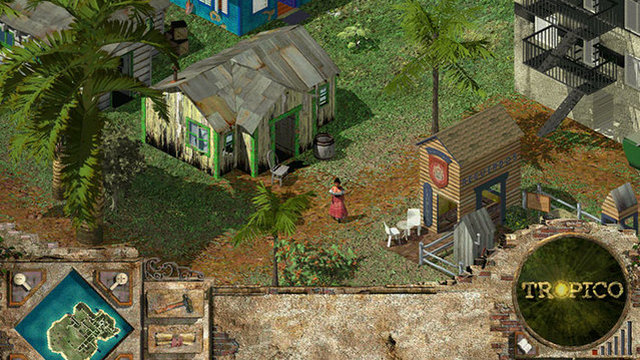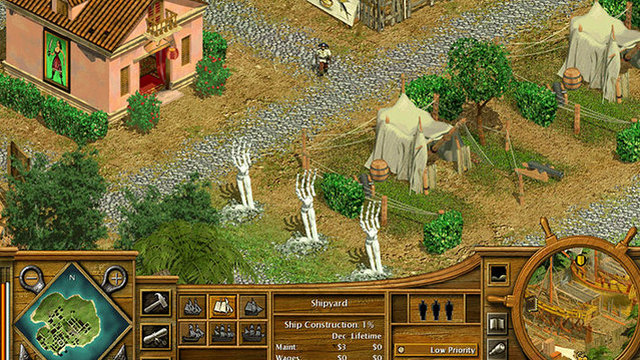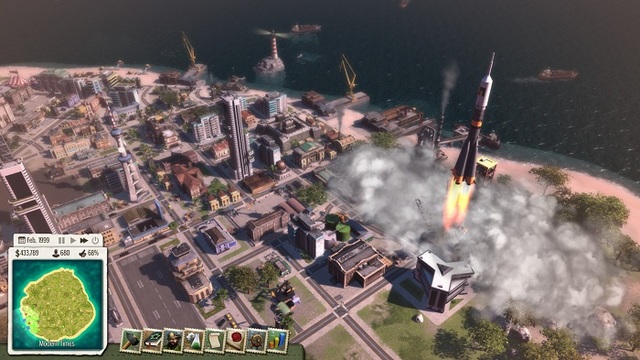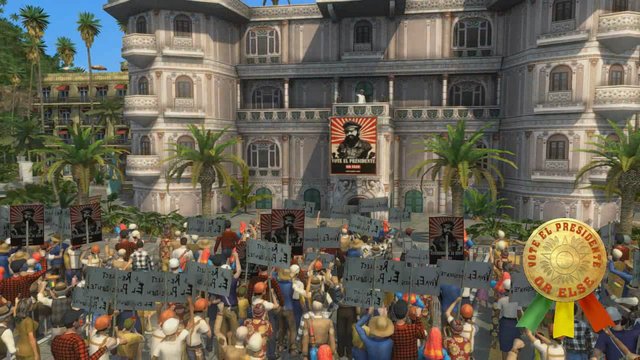While Tropico 2: Pirate Cove does provide some unique twists on the construction and management simulation genre, it feels more like an expansion to the original title than a full-fledged sequel. The gameplay foundation is similar in that one must initially build farms to provide people with basic necessities. Scenarios are once again strung together haphazardly and the game’s presentation remains largely unchanged. Though players are tasked with maintaining a secret pirate hideout instead of leading a developing island country, it’s sometimes hard to convince oneself that Tropico 2‘s setting is completely different.
What sets the game apart from its predecessor is its reliance on slaves, who are kidnapped by hired buccaneers in order to churn out the bulk of the hideout’s products and services. The work that these slaves provide can keep the pirates satisfied, as they’ll frequently spend their paychecks on the brothels, gambling dens, restaurants, and taverns in the area. This cycle allows the economy to sustain itself. In turn, fans can focus on acquiring even more slaves by expanding the number of marauders on their payrolls.
Similarly to Tropico 2, Tropico 5 refuses to diverge from the norm. This isn’t a huge flaw, as its single-player campaign does a great job of explaining how to establish revenue sources and keep one’s territory safe from enemy invasion. There’s plenty of content for veterans to sink their teeth into too, as they can investigate farming minutiae and experiment with their mix of crops to determine which combinations offer the highest yields. A multiplayer mode adds even more fun by allowing players the chance to build or sabotage a nation with friends.
While Tropico 5 is accessible, it doesn’t offer a lot in the way of challenge. In most building simulation games, players are tasked with uncovering practical solutions to societal problems. For instance, fans can reduce an area’s crime rate by installing more police stations. In Tropico 5, pop-ups give players specific instructions on what they need to do without giving them the option to figure things out for themselves. These hints oversimplify the game’s premise by removing the charm that comes with learning what it takes to run a thriving civilization.
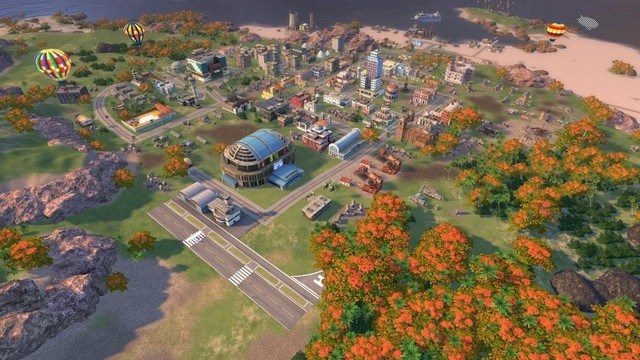
In regards to accessibility and difficulty, Tropico 4 strikes the right balance between the entries immediately before and after it. While the game also features a steep learning curve, it removes a lot of the micromanagement responsibilities of Tropico 3 and allows players to focus on more important issues like boosting their nation’s gross domestic product or improving relations with foreign countries. The presence of natural disasters keeps fans constantly worried about damage to infrastructure and forces them to set aside reserve funds for whenever the going gets tough. Tropico 4 isn’t ashamed to be complicated. Thankfully, it doesn’t relegate itself to veterans and remembers to continuously provide subtle hints to newcomers.
The Tropico franchise’s intricate mechanics take time to learn, as no one can rule a nation with a few button presses. When fans do manage to develop their islands into economic powerhouses, however, it’s impossible for them to ignore the wave of satisfaction that sets in. In between building their next space shuttle or instructing media outlets to distribute more political propaganda, they’ll be able to better understand the ins and outs of running a country effectively.

